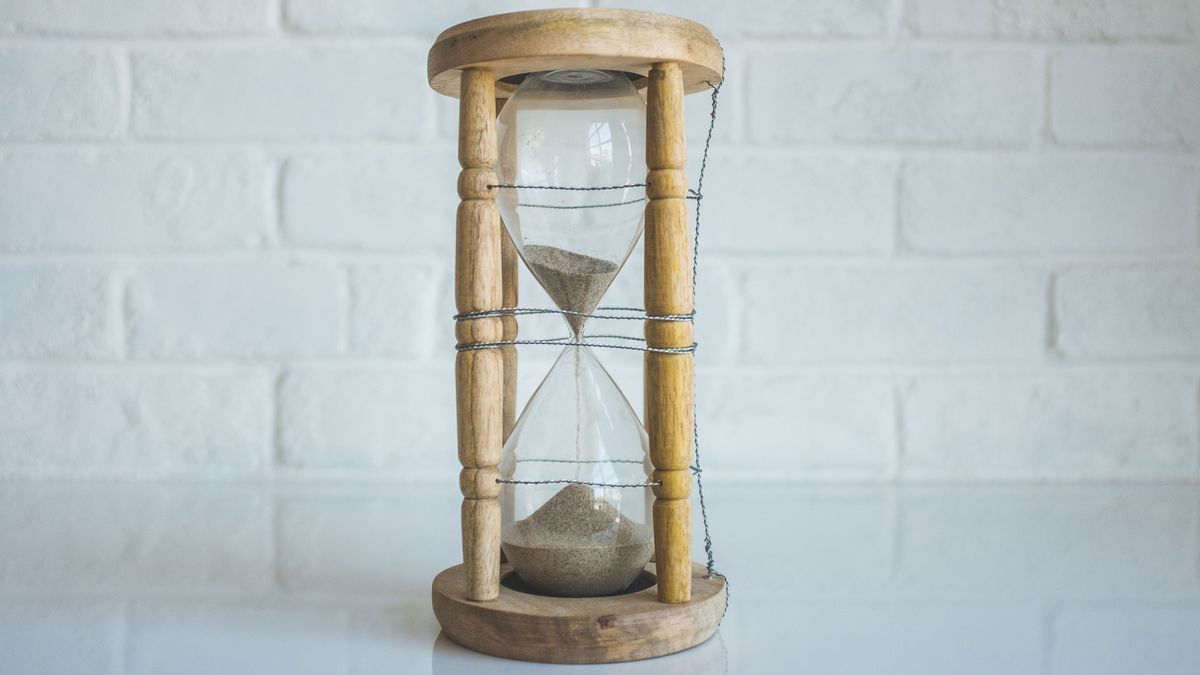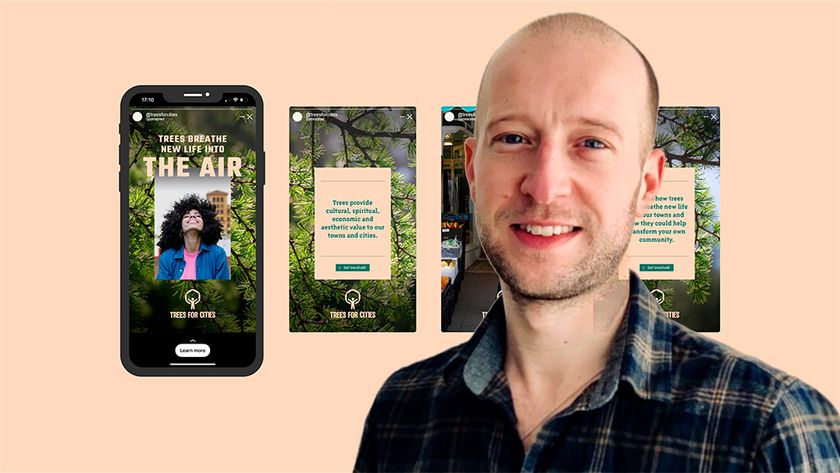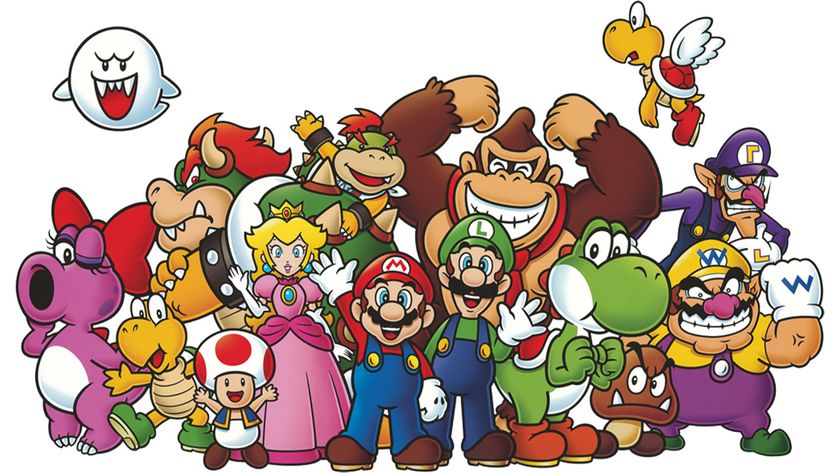
Do you feel like your work-life balance is too heavily weighted toward the former? Are you always struggling to meet deadlines? Do you feel like you're constantly running to keep still?
We all have 'time sinks' in our days that we're barely conscious of. But if you really focus on what they are, and how to remove them, you can suddenly free up serious numbers of extra hours and become more creative and productive as a result. Who knows, you might even have time to complete that tattoo art you've been thinking about creating, or have time to make your own font.
Want more time off, longer holidays and shorter days? Then read on, and see how many of these common time sinks apply to you.
01. Emails

When compared to the old days, when office workers spent hours every morning opening and replying to physical letters, email is one of the most time-saving inventions of modern times. And yet, the sheer volume of emails we receive can often feel overwhelming.
If you feel like you’re drowning in emails, then you either don’t have a robust enough system for dealing with them, or no system at all. Doing something about that can make a huge difference to how much time you spend on them.
There’s no catch-all solution that works for everyone; you’ll have to find that out by trial and error. But the more you work on improving your system, the better things will get. The problem is, we often tell ourselves we 'don’t have time' to do so, which is the most unproductive false economy you could ever imagine.
So set aside an hour one day to think about how you could improve the way you organise your emails. Then put a new system in place, and review it on a regular basis. If you don’t know where to start, here are a few ideas you might try…
Get the Creative Bloq Newsletter
Daily design news, reviews, how-tos and more, as picked by the editors.
- Apportion a specific time period each day to respond to emails, and don’t even look at your inbox at other times.
- Save yourself typing repetitive responses to non-important message by using automating replies, such as Gmail’s Canned Responses (Settings > Labs > Canned Responses).
- Create rules to filter certain messages from your inbox to a folder automatically. For example, in my inbox any email that is addressed to my social media handles (eg, ‘Dear @journotom’ or ‘Dear @tom_may’), rather than my actual name, is automatically junked.
- Aim for inbox zero every day: the psychological boost can be enormous and the practice can help you to start write shorter, to-the-point emails as a habit.
- Take the time to unsubscribe from time-wasting services that keep sending you pointless notifications.
- Create a policy of not replying to certain kinds of email. For example, if my email address is marked ‘bcc’ (‘Blind Carbon Copy’ from the old analogue days) and I am not directly mentioned in the body, I feel that implies it is for my information only and I'm not obligated to reply to it.
For more tips, read our indispensable guide to email management for creatives.
02. Instant Messaging

The word ‘Instant’ in Instant Messaging can be misleading. Yes, the speed at which your messages are sent may be fast. But that does not necessarily make it the least time-consuming way to have a conversation.
Even if you’re super-fast at typing, an IM conversation about a work matter can end up taking an age. But it has become such a habit to most of us that we don’t even consider that picking up the phone, or having a chat of Skype, might be a lot faster.
Hearing someone’s voice can remove ambiguity, conveying emotion and boost understanding in a way that can be difficult to do by text message, however cool your emoticons are. And that can make for quicker decisions and less time spent on meandering, endless discussions.
Yes, you don’t have an easy record of the conversation to refer back to later, but ask yourself if that’s really vital. Even if it is, a quick email summary after your chat can solve that problem, and you’ll probably still have spent less time overall.
03. Meetings

If, as we established in the last paragraph, face-to-face conversation can be a quicker way to resolve issues than instant messaging, then why do meetings suck so badly?
We’ve all experienced boring, dull, endless meetings that fail to settle anything and end up being a spectacular waste of everybody’s time. To prevent this, it’s important to settle on some ground rules first, and make sure everyone agrees to them before you start.
These might include the following.
- A clear agenda and agreed goals (the fewer the better): if you don’t know what you want the meeting to achieve, you’ll never achieve it.
- No deviations from core topics: if you want to chat about other things you can do it in the pub later.
- A strict time-limit (the shorter the better) and absolutely no late arrivals.
- A limit on attendees (the fewer the better).
More controversially, you might also want to speed things up by leaving phones and laptops at the door (notes can be taken on notepaper, but devices offer too many distractions). You could also consider taking away the chairs: people are more likely to drone on and on if they’re comfortable, less so if they’re standing up. For more detailed advice, read our article on how to run effective meetings.
04. Gaps between meetings

While meetings are obvious time sucks, what we often fail to account for is the amount of time we waste between them. If, for example, you’ve got another one starting in 15 minutes, it's kind of pointless to spend five minutes going back to your desk, five minutes working and then leave again.
The obvious solution is to leave shorter gaps between meetings, which in turn puts extra stress on each meeting starting and finishing on time. If you can't though, then consider planning ahead and finding a 15 minute task you can realistically do in the gap, such as answering a difficult email. By scheduling it for a particular time slot, you're far more likely to do it, rather than just wasting the time on Instagram or Twitter. Talking of which...
05. Social media

How much time do you spend during your working day on social media? If you want an app to tell you, we’d recommend AntiSocial for Android and Pryxsee for iOS. But most of us don’t need to be told that we waste hours on Facebook, Twitter and Instagram when we should be working. And that this time probably represents at least one day a month we could be taking off from work entirely.
So ask yourself: what’s wrong with the idea of turning off your phone, or at least its internet connection, completely during working hours?
Social media is designed to make us think that we have to be always ‘on’, and contactable, especially as freelancers, but is that really true? Don’t all serious work enquiries still arrive by email?
Even if that’s not the case, do they really need to be replied to instantly (it’s not always great to seem too keen)? We’d suggest that for most people other than freelance creatives who are just starting out, the answer’s no. So just switch it off, and start surfing on the thrilling tide of actually getting things done.
For more tips, read our post how to make social media work for you.
06. Commuting

One of the best things about freelancing for home, or remote working in a job, is that you claw back at least couple of hours a day that you would have spent commuting. But that’s not possible for everyone.
So if you have to travel to work, how do you stop that being totally wasted time?
There are two ways to go. Firstly, if you travel by train or bus, ask yourself if it’s possible to actually work during your commute. Sometimes it’s not worth the hassle: you don’t have a seat, the Wi-Fi or mobile internet signal is patchy or non-existent, and the noise makes it difficult to concentrate. But if you plan ahead it might be a different story.
For example, you might be able to set your laptop up with creative work you can do offline. Noise-cancelling headphones plus the right soundtrack could help minimise distractions. Travelling earlier or later might boost your chances of getting a seat.
Alternatively, you could give the idea of working on your commute up as a lost cause, and instead use the time in different ways. Catch up on podcasts, audio dramas, TV shows and films. Read a good book or your favourite magazine (we have some excellent creative titles to consider here).
That might not be productive in a work sense, but time spent doing things you enjoy shouldn't be seen as 'wasted time', it’s time spent recharging your batteries and making you feel more creative once you do sit down to work.
07. Watching TV

Iconic fashion designer Vivienne Westwood has famously never had a television set; her attitude is that you either create great work or be distracted by entertainment. But while most creatives see this as less of a binary decision, it’s certainly true that most of us waste too much time watching TV. And what’s worse, we don’t always even enjoy it that much.
Granted, streaming services like Netflix and Amazon have cut down on the amount of time we waste watching commercials, and help us focus more on the kind of shows we actually like, rather than staring blankly at whatever pops up on broadcast TV at the end of the evening.
But watching streaming box-set series can be damagingly addictive, as you continually try to fight the lure of ‘just one more episode’. So as well as putting time limits on your children’s viewing, shouldn’t you consider setting a good example and sticking to strict limits of your own too?
Also, try spacing out episodes of a show rather than binge-watching. It can actually make your viewing experience more enjoyable, as you ponder what might happen next in the show throughout the week, rather than just letting the whole story wash over you in one sitting. What’s more, the forthcoming episode will feel like more like a treat, something to look forward to, just like watching your favourite show did as a kid.
It’s also vital to resist the urge to be a completist. Just because you’ve started watching a show, that doesn’t mean you have to finish it. If you’re not hooked by episode three, why not just quit it? It’ll still be there to catch up on next time you have a sick day and just want something on in the background while you snot your way through a box of tissues.
Finally, that feature on streaming services that automatically plays the next episode; difficult to resist, isn’t it? So disable it. Simple.
08. Tasks you should have delegated

A lot of time we think we’re being productive, but actually we’re not. That’s because we’re doing work that other people could be doing. Often, those people are desperate to be given extra tasks, as a way of furthering their career development or, if they’re freelancers, of paying their rent. But we deny them, telling ourselves that only we can be trusted with this important task.
Get over yourself. Yes, delegation can be difficult: It’s about picking the right people for the right job, striking the right balance between guidance and interference, giving good instructions and being patient with people. But the more you learn to let go, the easier it becomes and the better you’ll get at it. Plus it's a win-win, as being able to delegate well is going to supercharge your career prospects in the long term.
For more advice, read our post 10 ways to master the tricky art of delegation.
09. Interruptions

Sometimes it can feel like it’s impossible to get any work done in the office at all. You’re really trying to focus on solving a difficult problem but there are so many distractions, from one colleague wanting to chat about the football to another asking you to sponsor their 10K run. The moment you start to get into a decent workflow, another interruption comes along and sets you back to square one.
At times like these, when you really need to concentrate, there’s nothing wrong with making that fact clear to others. Putting on your headphones is a time-honoured way to advertise your ‘Do Not Disturb’ status. If that doesn’t work then why not just ask people politely not to interrupt you for the next hour, or tell them you’re relocating to an empty room so you can concentrate better?
At other times, when you’re working on more routine work, you’ll probably be glad of background noise and the odd bit of random chat. So don’t alienate your colleagues, just use common sense and good communication to let them know when that’s welcome and when it isn’t, and respond in kind when they send the same messages to you.
10. Procrastination

Ultimately, the problem of time sinks often boils down to one thing: procrastination. You know you really should be getting on with one particular task but you basically don’t want to. So you subconsciously seek high and low for alternative tasks, make endless cups of tea, or simply sit there staring at a piece of paper as if the answer will miraculously jump out of it.
The important thing about procrastination is to (a) know when you’re doing it and (b) know why you’re doing it. The latter may be anything from fear of failure to the fact you need to eat or take a break. But only when you accept the problem can you deal with the solution. For further advice, check out our 5 fail-safe ways to beat procrastination.
Read more:

Thank you for reading 5 articles this month* Join now for unlimited access
Enjoy your first month for just £1 / $1 / €1
*Read 5 free articles per month without a subscription

Join now for unlimited access
Try first month for just £1 / $1 / €1
Tom May is an award-winning journalist and editor specialising in design, photography and technology. Author of the Amazon #1 bestseller Great TED Talks: Creativity, published by Pavilion Books, Tom was previously editor of Professional Photography magazine, associate editor at Creative Bloq, and deputy editor at net magazine. Today, he is a regular contributor to Creative Bloq and its sister sites Digital Camera World, T3.com and Tech Radar. He also writes for Creative Boom and works on content marketing projects.












